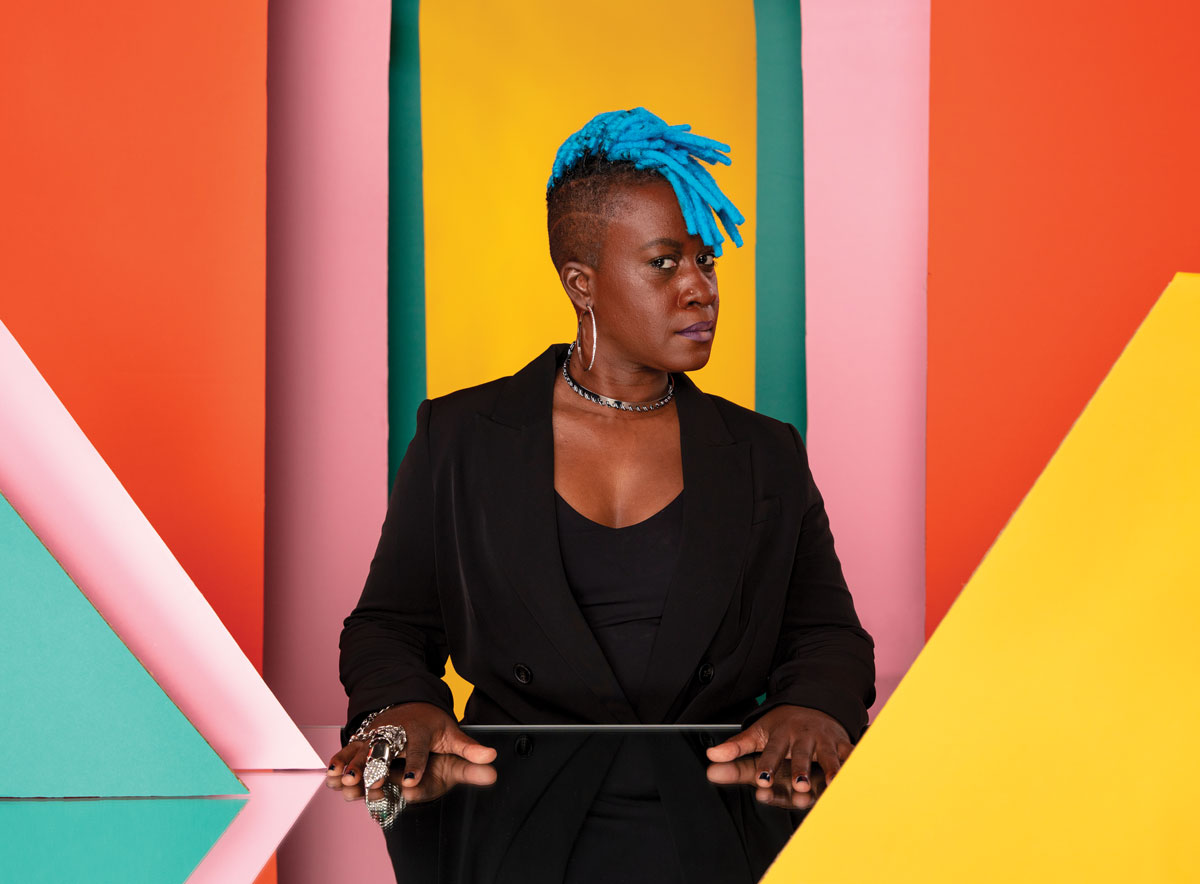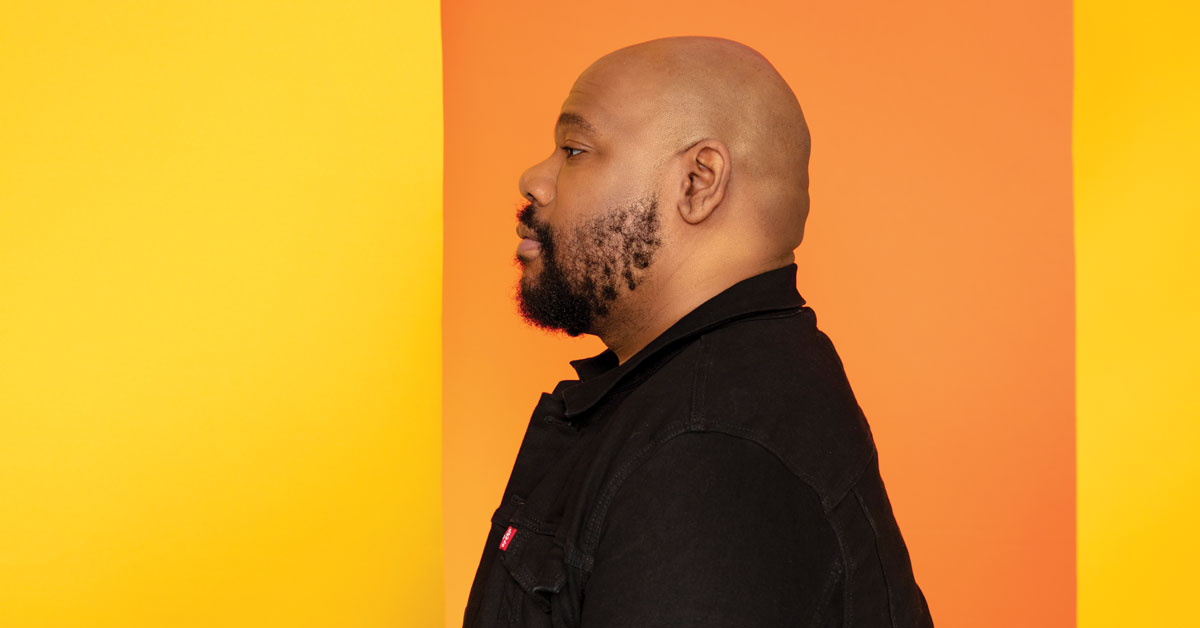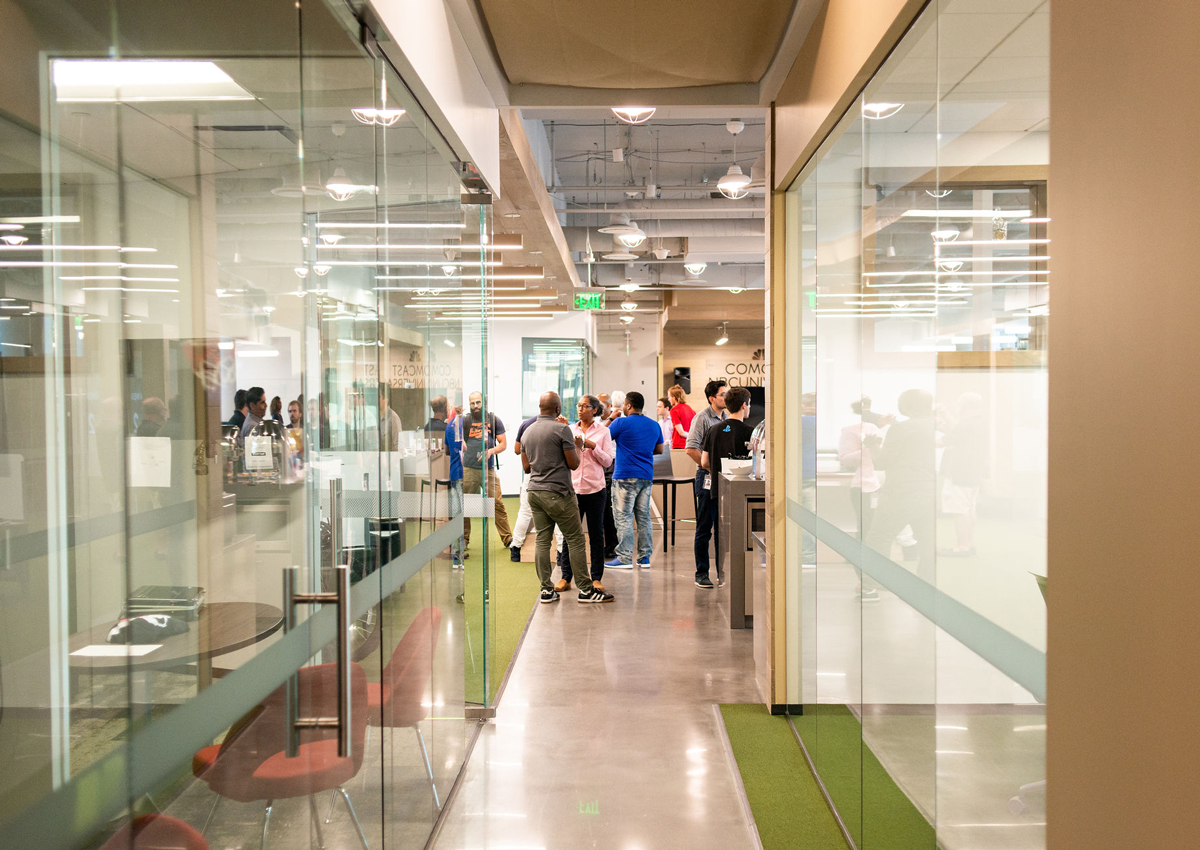By now, you’ve heard of the Great Reshuffle, the Great Resignation, the Great Reprioritization, the Take This Job and Shove It economy. Whatever you call it, the best description comes from Time: “If April 2020 was the month of pink slips, as the rapid spread of Covid-19 resulted in the loss of 20.5 million jobs, then Fall 2021 [was] the dawn of their revenge.”
According to the Labor Department, 3 percent of U.S. workers (4.4 million people) quit their jobs in September—the most ever recorded in a single month. Last year, half the workers in the U.S. reported feeling burned out; one in four quit their job. (Georgia, alongside Idaho and Kentucky, led the country in “quits” at one point.) Even more workers plan to quit or change jobs within the year. “This is a moment of change,” says Amelia Schaffner, founding director of the Center for Entrepreneurship & Innovation at Emory University’s Goizueta Business School. “We’ve all been hit with different ways of experiencing life and work. We now have this feeling that we need to look at our time more consciously. How can we use it in a more purposeful way?” “Pandemic epiphanies” helped people—or, in a lot of cases, forced them to—reevaluate their priorities. Some retired; some are waiting for the next (better-paying) opportunity to arise. But a not insignificant number of people decided to take a risk on their own thing, perhaps encouraged by federal stimulus money and unemployment benefits. From January through September 2021, more than 4 million people across the U.S. applied to start new businesses. During the same time frame, Georgia saw more than 258,000 new business applications; 2021 held seven of the state’s top 10 record months for filings by businesses that expect to hire employees. And Atlanta is a large part of that—not that entrepreneurship is a new concept here. The city was and is shaped by it: Think Coca-Cola, Turner Broadcasting, Tyler Perry Studios—from Sweet Auburn, the brick-and-mortar Black business district that boomed in the early 1900s, to modern-day tech giants like OneTrust and Mailchimp.
But the Great Reshuffle is not only about who we work for, or whether we work for someone at all. It’s about how we work: “Do I want to work 80 hours a week? Do I want to go to the office five days a week? It’s not just about benefits and money,” explains Schaffner. There’s also been a shift in what we expect from companies: Gen Z was already propelling companies into a social-good space that they largely had not occupied; that push was, like everything else, accelerated by the pandemic.
Schaffner says entrepreneurs sometimes get a reputation for being “capitalists focused on shareholders,” but that’s not how she’d describe them (at least, not all of them). They’re problem solvers. “There are still people who are just adding widgets to the ocean and people who are just out to make money, but I tend to ask harder questions of [my students],” she says. “What impact are you making? Are you adding or taking away from the world?” You don’t have to quit your job or start a business to ask yourself that.
These pieces are about entrepreneurship, technically. But they’re also about people just looking to do something different, sometimes something better. All while the face of entrepreneurship itself is changing (and not just because white men now make up the minority of business owners in the U.S.). “Entrepreneurship has its origins in a French word, entreprendre, which means ‘to undertake,’” says Schaffner. It’s no wonder, then, that it serves “as an umbrella to many different forms of venture,” reaching beyond brick-and-mortars and scalable startups to include social entrepreneurs, B-corps (a new kind of business that balances purpose and profit), and even influencers.
“There is indeed an evolution of what might constitute a new ‘venture,’” says Schaffner, whether your dream is to found the Southeast’s next decacorn or to grow herbs on a six-acre farm in Fairburn.
Learn more about Atlanta’s new class of entrepreneurs in the stories below.

Photograph by Brinson + Banks
Meet Atlanta’s new wave of entrepreneurs
They’re not just tech founders and CEOs—Atlantans are launching businesses as ceramicists, farmers, influencers, and more. Learn about 16 of them here.

Photograph by Brinson + Banks
Isaac Hayes III wants to help social media creators monetize their content
In the 20th century, Black musicians and other artists were regularly taken advantage of for their creative labor. In the 21st century, eight-tracks and record players have given way to TikTok and YouTube—but the exploitation remains. These entrepreneurs are fighting to change that. Keep reading
In Stonecrest, the new Black Wall Street Market wants to help minority-owned businesses grow
From the bustling 1920s Sweet Auburn business district to 1990s hitmaking labels like LaFace and So So Def; from stalwarts like H.J. Russell & Co., Bronner Brothers, and Citizens Trust Bank to Calendly and the city’s burgeoning tech scene, Atlanta wouldn’t be what it is today without Black entrepreneurs. In fact, the city is consistently ranked among the best places in the U.S. for them. But according to Prosperity Now, a nonprofit focused on racial and economic equity, the vast majority (96 percent) of Black-owned businesses in metro Atlanta are sole proprietorships.
“Most of us are first-generation business owners, so we grew up in an environment where we didn’t have that rich uncle that could give us advice on how to take the company from a million to 10 million,” says Matthew Hampton, director of entrepreneurship at the Atlanta-based Allen Entrepreneurial Institute (AEI). According to the Harvard Business Review, Black women are more likely than any demographic group, including white men, to start a business. But launching a business is only the first step; sustaining and growing it is the next challenge. While 17 percent of Black women were in the process of starting or running a new business last summer, only 3 percent were running mature businesses. According to the Review, this disparity is, in part, because the Black community is often still shut out from the resources necessary to scale or establish a young business. Though access to capital is among the largest concerns, even peer support and collaboration and mentorship could help change that narrative.
That’s where AEI comes in, with entrepreneurial training, workshops, accelerators, and conferences geared toward minority- and women-owned businesses.
In late 2021, the institute launched the New Black Wall Street Market, named for the wealthy Black business district in Tulsa, Oklahoma, that was terrorized and destroyed by white supremacists in 1921. Hampton says New Black Wall Street, which is located in the predominantly Black city of Stonecrest, will not only increase the number of minority-owned businesses in the metro but also help them grow: NBWS merchants will have access to customer service, marketing training, and online sales support. The sprawling, 125,000-square-foot marketplace will serve roughly 400 entrepreneurs through brick-and-mortar locations, pop-up and consignment shops, and e-commerce. In addition to those shops, AEI envisions a food court, gourmet grocery store, jazz club, and art gallery.
“I think the marketplace will really have an impact on entrepreneurship around Atlanta because it’s founded by Black people and it celebrates the culture of Black people,” Hampton says. —Jacinta Howard

Photograph courtesy of Roadie
How the journeys of four much-hyped Atlanta startups stack up
For those feeling inspired by stories in this package and drafting their resignation letters, a cruel dose of reality from the Harvard Business Review: “If you’re launching a business, the odds are against you: Two-thirds of startups never show a positive return.” Striking startup gold is incredibly rare, but it does happen. Here are a few much-hyped startups and their (sometimes short) journeys, alongside onetime Atlanta darling Mailchimp. Keep reading
Who’s who
Last year, startups in Georgia raised almost $3 billion in venture capital, beating 2019 and 2020 records. Five Atlanta startups reached unicorn status, surpassing $1 billion valuations. Mailchimp and Spanx saw billion-dollar exits. And Atlanta’s startup scene is still growing: Construction on the Propel Center, a joint initiative from Apple, Southern Co., and Ed Farm, is scheduled to break ground at Atlanta University Center early this year; the $50 million, 50,000-square-foot campus will nurture HBCU students’ budding tech careers.
Here, a few movers and shakers to know: Entrepreneur Jewel Burks Solomon (whose startup PartPic was acquired by Amazon) is head of Google for Startups and managing partner of investment fund Collab Capital. Her Collab Capital cofounder, Barry Givens, mentors startups as managing director of Techstars’ Social Impact Accelerator. Joey Womack, another community builder, connects underrepresented social entrepreneurs to opportunities through his Goodie Nation and Amplify 4 Good ventures. Technology entrepreneur Paul Judge, an alumnus of Georgia Tech and Morehouse College, cofounded two startups and then two Atlanta-based venture fund (TechSquare Labs and Panoramic Ventures, where he is a managing partner). David Cummings, after selling his marketing-automation firm, Pardot, opened the Atlanta Tech Village in Buckhead to help founders find community and resources; ATV is now the fourth-largest tech hub in the U.S.
Georgia State University’s LaunchGSU incubator and the Center for Black Entrepreneurship at Spelman and Morehouse empower students to start their own businesses. Georgia Tech’s Tech Square doesn’t just host students; the center also provides resources for outside founders in the form of accelerators, VC firms, and incubators. Advanced Technology Development Center incubates seed-stage startups and entrepreneurs to help them raise capital and find the right product-market fit. Students at Emory University recently launched the Peachtree Minority Venture Fund to invest in Black, Latinx, and Native American entrepreneurs. —Muriel Vega

Courtesy of Branch Politics
4 Atlanta startups that are giving information back to the people
Information is power, and these startups are giving it back. Branch Politics, pictured above, offers sample ballots and side-by-side candidate comparisons. Another startup, TruDiary, helps OB-GYNs better care for their patients, especially Black mothers. Learn about all of them here.

Photograph courtesy of the Farm
How to navigate Atlanta’s thriving startup ecosystem
There wasn’t a need for a resource guide when Adam Harrell became an entrepreneur 17 years ago. But as the scene has grown, so has the need for help navigating it. Today, Harrell serves on the board of Startup Atlanta, a nonprofit that creates an annual “ecosystem guide” to help entrepreneurs find what they’re looking for, from funding to mentorship. Keep reading
Top 5 Atlanta Startups
Chosen by the Metro Atlanta Chamber of commerce using criteria such as revenue and cultural impact
All-time
1. The Home Depot
2. Coca-Cola
3. Chick-fil-A
4. Tyler Perry Studios
5. Spanx
Last 20 years
1. Mailchimp
2. Kabbage
3. GreenSky
4. Secureworks
5. AirWatch
Last 10 years
1. OneTrust
2. Calendly
3. Greenlight
4. Flock Safety
5. Bakkt
Package edited by Heather Buckner.
These articles appear in our January 2022 issue.










![The North Carolina Museum of Natural Sciences’ newest exhibit is a [pre]historic first](https://cdn2.atlantamagazine.com/wp-content/uploads/sites/4/2024/04/DD-3-100x70.jpg)



